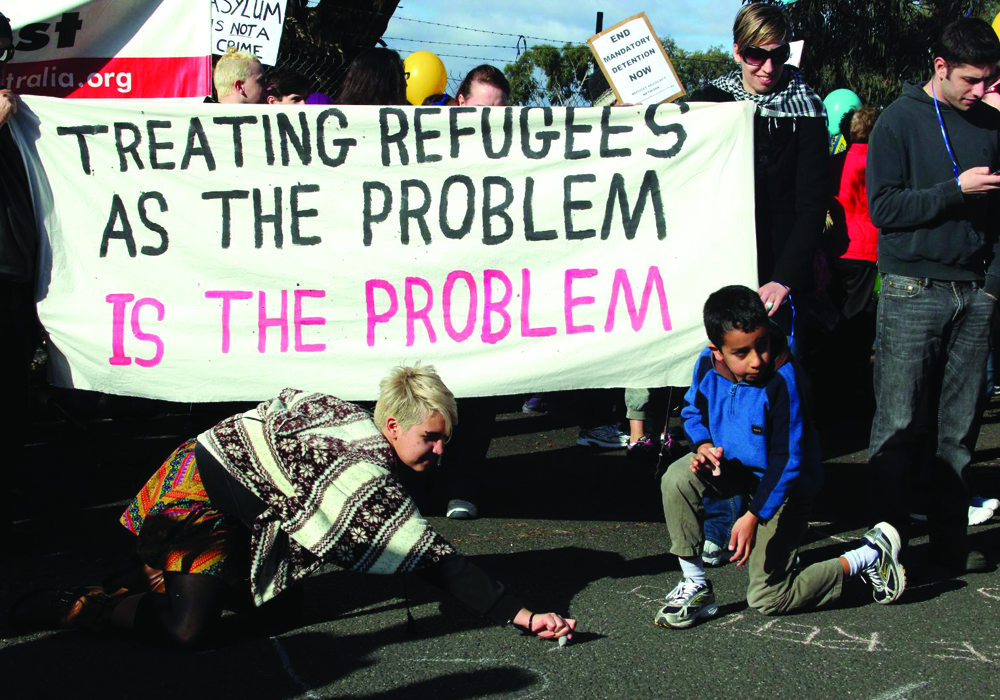Kanchi Uttamchandani, Contributor
Featured image courtesy of John Englart (Takver)
The York community is continuing to show its commitment to not just help refugees resettle in Canada, but also to make sure that all of their essential needs, including health care needs, are met. The Liberal government seems to be on the same page.
Ideally, refugees entering Canada are covered under the Interim Federal Health Program, which accounts for all of their basic health care needs, until they are eligible for provincial health insurance.
However, in 2012 the former Conservative government divided refugee health care into six different categories of IFHP coverage, depending on factors such as the refugee’s source country and the treatment they were seeking. This decision was an attempt by the government to save an estimated $20 million annually. However, it also made the IFHP a very bureaucratic and confusing program for health care providers. Applicants for refugee status and those who were privately sponsored were deemed ineligible to receive health care assistance from the government regardless of their medical condition.
“Harper’s government had denied health care coverage to refugees, only covering treatment for illnesses considered a public safety issue,” says Jessa McLean, president of Amnesty International at York. “Refugees were usually categorized as ‘undeserving’ or as a ‘nuisance,’ thereby making them an easy scapegoat for a government that was primarily focused on cost-cutting.”
McLean believes that not much has changed under the current Liberal government. “It is still early on in the game to comment on the effectiveness of the Trudeau government, and we have yet to see if a handful of winter coats translates into tangible rights for refugees.”
She adds that cutting costs by taking away access to health care coverage from refugees is counterproductive because “there is no doubt that once refugees are successfully integrated into society, they turn out to be very community driven and hardworking members of society who substantially contribute to the host economy.”
On February 18, Canada’s immigration minister John McCallum, and health minister Jane Philpott announced the government’s landmark decision to fully restore refugee health care benefits to pre-2012 levels by April 1 of this year. By April 2017, the government has pledged to provide additional health care coverage to refugees, including pre-departure health exams, vaccinations, access to prescription drugs, and vision and urgent dental care.
McCallum said that this is good news from a public health, a resettlement and an economic perspective, because refugees who were not previously covered would go to emergency rooms of hospitals where the cost to treat them was, in fact, higher.
Mariam Hamaoui, project associate of York University Syria Response and Refugee Initiative and president of the RefugeAid, believes that this is important. “Incoming refugees are likely to be prone to a host of health issues, including but not limited to mental health, dental problems, and a higher rate of chronic diseases,” she says.
“Trauma experienced by refugees is often much worse than PTSD, and this is further exacerbated by their struggle with depression, which is an aftermath of escaping a war ravaged country.”
“In order to access primary care, which is the first point of contact for refugees, special health clinics have been set up all across Canada to address their complex medical histories and multiple health concerns.”
York will soon begin sponsoring refugees as well, both families and individual students, and is raising money in the Lifeline Syria Challenge to financially support the sponsoring and resettlement of these refugees. The government’s readiness to take away some of the burden of health care costs is therefore a welcomed step in the right direction.
Tweet us, @excaliburYU


